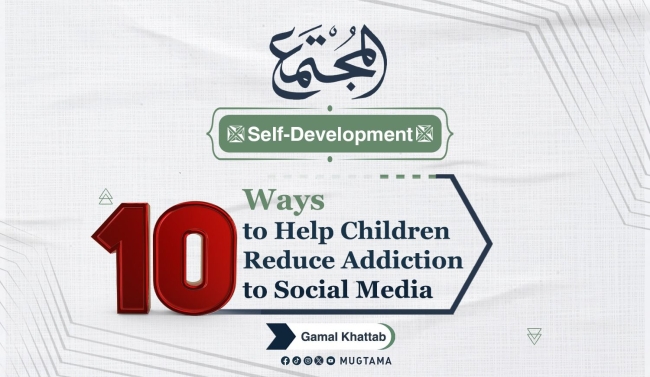10 Ways to Help Children Reduce Addiction to Social Media
Society lives in a digital age; therefore, social media is one of the significant elements in the current children's lives. However, children that are much exposed to social media develop an addiction to it negatively affecting their physical and mental health, social skills, and even academics.
Every parent or guardian should be aware of the risks and dangers lurking in the use of social media and apply ways of promoting good health in online habits and reducing children's addiction to social media.
- Boundary and limit setting
Establish screen-free zones and times, such as during meal times, an hour before bed, or if one has family activities, to help children learn good habits that reduce over-reliance on screens.
- Practice digital literacy
Let the children know the possible risks and consequences of social media, including bullying, privacy, and addiction, for them to learn critical thinking and make sound decisions regarding what they do online.
- Physical activity
Engage your children in outdoor activities, sports, or hobbies to make them less addicted and develop a healthy body.
- Plan offline activities
Plan some funny screen-free activities like board games, puzzles, or arts and crafts. This not only provides alternative entertainment to the child but also decreases their reliance on the screen.
- Monitor and track usage
Use parental control software or apps that help you track how your child is using social media and look out for problems and nip them in the bud.
- Have open conversations
Share with your child regarding his/her use of social media, experiences, and feelings to help them grow and develop healthy online habits that cut down on the risk of addiction.
- Model responsible behavior
Show them how to use it responsibly: Set a good example by limiting your use and promoting good online habits.
- Growth mindset
Encourage children to develop a growth mindset that might enable them to say no to the lures of social media and be more thoughtful about how they use their time online.
- Social media literacy skills
Help your children think critically about what they see on social media, which also includes biases and manipulations, to help them develop good practices in using the media.
- Encourage offline creativity
Help them express themselves through art, music, or writing among other things to help them avoid addiction to social media and build healthy practices.
In a word, addiction to watching social media by children is a kind of fight that needs comprehensive intervention: setting limits, educating children, encouraging physical activity, creating activities offline, monitoring, and tracking.
---------------------
Sources:
- Stephanie Irvine, a child development specialist. (Source: American Academy of Pediatrics)
- Justin Patchin, a cyberbullying expert. (Source: Cyberbullying Research Center)
- Joseph Toback, a pediatrician and child development specialist. (Source: The Children's Health Insurance Program)
- Walter Sullivan, a child psychologist. (Source: The Journal of Family Issues)
- Ananda Marin, a child development specialist. (Source: The Importance of Arts Education)
